
These are tables of congressional delegations from West Virginia to the United States House of Representatives and the United States Senate.

Joseph Manchin III is an American politician and businessman serving as the senior United States senator from West Virginia, a seat he has held since 2010. Manchin was the 34th governor of West Virginia from 2005 to 2010 and the 27th secretary of state of West Virginia from 2001 to 2005. He became the state's senior U.S. senator when Jay Rockefeller left office in 2015 and has since been West Virginia's only congressional Democrat. Before entering politics, Manchin helped found and was the president of Enersystems, a coal brokerage company his family owns and operates.
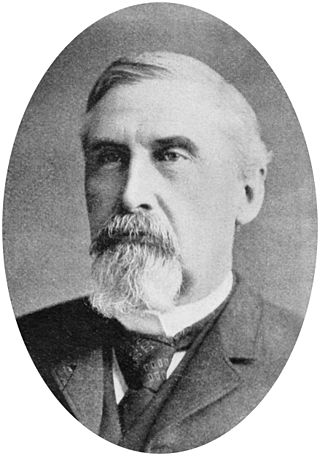
John Jeremiah Jacob was a Democratic politician from Green Spring in, in the U.S. state of West Virginia. Jacob served two terms as the fourth governor of West Virginia. He was also elected to the West Virginia House of Delegates from Hampshire County in 1868 and from Ohio County in 1879.

Waitman Thomas Willey was an American lawyer and politician from Morgantown, West Virginia. One of the founders of the state of West Virginia during the American Civil War, he served in the United States Senate representing first the Restored Government of Virginia and became one of the new state of West Virginia's first two senators. He is one of only two people in U.S. History to represent more than one state in the U.S. Senate, the other being James Shields.
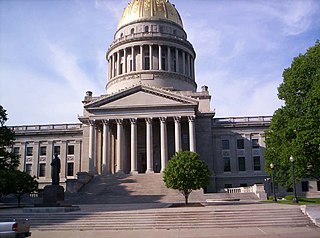
From the time of the Great Depression through the 1990s, the politics of West Virginia were largely dominated by the Democratic Party. In the 2000 presidential election, George W. Bush claimed a surprise victory over Al Gore, with 52% of the vote; he won West Virginia again in 2004, with 56% of the vote. West Virginia is now a heavily Republican state, with John McCain winning the state in 2008, Mitt Romney in 2012 and Donald Trump in 2016 and 2020.

Henry Mason Mathews was an American military officer, lawyer, and politician in the U.S. State of West Virginia. Mathews served as 7th Attorney General of West Virginia (1873–1877) and 5th Governor of West Virginia (1877–1881), being the first former Confederate elected to the governorship in the state. Born into a Virginia political family, Mathews attended the University of Virginia and afterward practiced law before the outbreak of the American Civil War. When Virginia seceded from the United States, in 1861, he volunteered for the Confederate States Army and served in the western theater as a major of artillery. Following the war, Mathews was elected to the West Virginia Senate, but was denied the seat due to state restrictions on former Confederates. Mathews participated in the 1872 state constitutional convention that overturned these restrictions, and in that same year was elected attorney general of West Virginia. After one term, he was elected governor of West Virginia.

The West Virginia Republican Party is the affiliate of the United States Republican Party in West Virginia. Matthew Herridge is the party chair. It is currently the dominant party in the state, and is one of the strongest affiliates of the national Republican Party. It controls both of West Virginia's U.S. House seats, one of the U.S. Senate seats, the governorship, and has supermajorities in both houses of the state legislature.

The 2010 congressional elections in West Virginia were held on November 2, 2010 to determine who would represent the state of West Virginia in the United States House of Representatives. Representatives are elected for two-year terms; the elected served in the 112th Congress from January 2011 until January 2013.
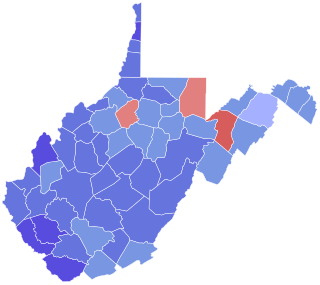
The 2012 United States Senate election in West Virginia was held on November 6, 2012, to elect one of West Virginia's two members of the U.S. Senate for a six-year term. In a rematch of the 2010 special election, incumbent Democratic U.S. Senator Joe Manchin won re-election to a first full term against the Republican nominee, John Raese. Notably, Manchin outperformed Barack Obama in the concurrent presidential election by 25.06 percentage points in vote share, and by 50.86 percentage points on margin.
Virginia v. West Virginia, 78 U.S. 39 (1871), is a 6-3 ruling by the Supreme Court of the United States that held that if a governor has discretion in the conduct of the election, the legislature is bound by his action and cannot undo the results based on fraud. The Court implicitly affirmed that the breakaway Virginia counties had received the necessary consent of both the Commonwealth of Virginia and the United States Congress to become a separate U.S. state. The Court also explicitly held that Berkeley County and Jefferson County were part of the new State of West Virginia.

The 2016 West Virginia gubernatorial election took place on November 8, 2016, to elect the Governor of West Virginia, concurrently with the 2016 U.S. presidential election, as well as elections to the United States Senate in other states and elections to the United States House of Representatives and various state and local elections. The primaries were held on May 10.
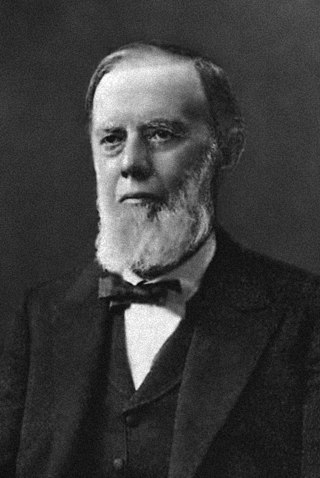
Edwin Maxwell was an American lawyer, judge, and politician in the U.S. state of West Virginia. Maxwell served as Attorney General of West Virginia in 1866 and was an associate justice of the Supreme Court of Appeals of West Virginia from 1867 until 1872. He was elected to the West Virginia Senate and the West Virginia House of Delegates.
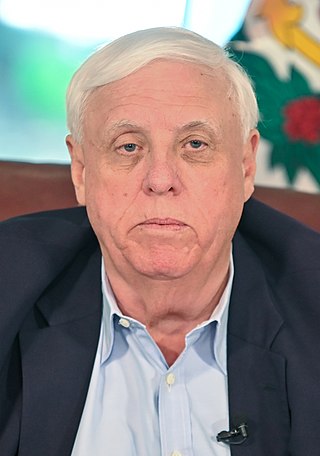
James Conley Justice II is an American businessman and politician who has served as the 36th governor of West Virginia since 2017. Justice was once a billionaire, but his net worth had declined to $513.3 million as of 2021. He inherited a coal mining business from his father and built a business empire with 94 companies, including the Greenbrier, a luxury resort in White Sulphur Springs.

The 2018 United States Senate election in West Virginia took place on November 6, 2018, to elect a member of the United States Senate to represent the State of West Virginia, concurrently with other elections to the United States Senate, elections to the United States House of Representatives, and various state and local elections.
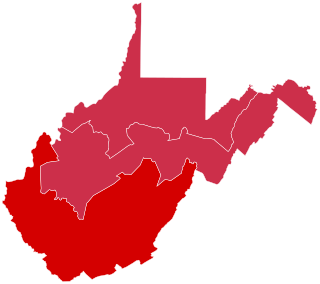
The 2020 United States House of Representatives elections in West Virginia was held on November 3, 2020, to elect the three U.S. representatives from the state of West Virginia, one from each of the state's 3 congressional districts. The elections coincided with the 2020 U.S. presidential election, as well as other elections to the House of Representatives, elections to the United States Senate and various state and local elections.

The Freedom to Vote Act, introduced as H.R. 1, is a bill in the United States Congress intended to expand voting rights, change campaign finance laws to reduce the influence of money in politics, ban partisan gerrymandering, and create new ethics rules for federal officeholders.
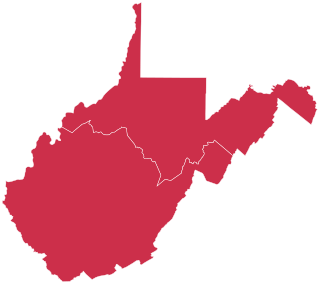
The 2022 United States House of Representatives elections in West Virginia were held on November 8, 2022, to elect the two U.S. representatives from the State of West Virginia, one from each of the state's two congressional districts. The elections coincided with other elections to the House of Representatives, elections to the United States Senate, and various state and local elections.

The 2024 United States Senate election in West Virginia will be held on November 5, 2024, to elect a member of the United States Senate to represent the State of West Virginia. Primary elections will take place on May 14, 2024.
Danielle Walker is an American politician and community activist, who served as a Democratic member of the West Virginia House of Delegates from 2018 until her resignation in 2023. Through her tenure, Walker was the only Black woman serving in the West Virginia Legislature. In June 2022, Walker was elected vice chair of the West Virginia Democratic Party, she later resigned as vice chairwoman after her selection as the leader of the American Civil Liberties Union of West Virginia.

The 2024 West Virginia gubernatorial election will be held on November 5, 2024, to elect the governor of West Virginia, concurrently with the 2024 U.S. presidential election, as well as elections to the United States Senate and elections to the United States House of Representatives and various state and local elections. Incumbent Governor Jim Justice is term-limited and cannot seek re-election to a third consecutive term in office and is instead running for the U.S. Senate. First elected in 2016 as a Democrat by 6.8 percentage points, Justice switched parties in August 2017 and won re-election in 2020 as a Republican by 33.3 percentage points. Primary elections will take place on May 14, 2024.


















